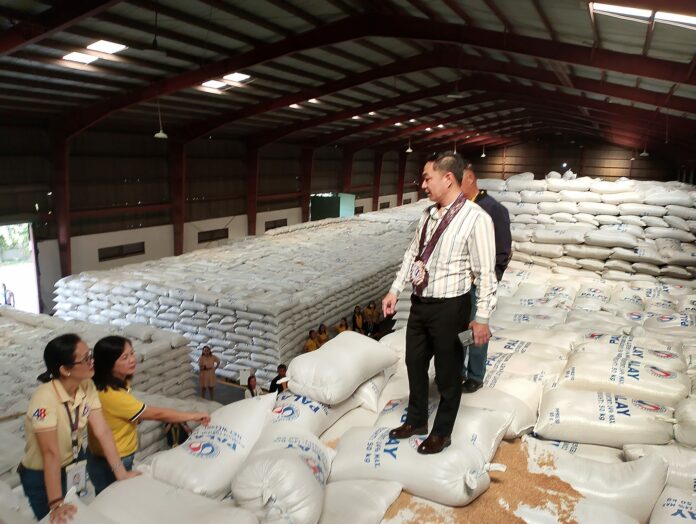The National Food Authority surpassed its upgraded palay procurement target in the first half of the year, fueled by the NFA Council decision led by Agriculture Secretary Francisco P. Tiu Laurel, Jr. to hike buying prices, boost the national buffer stock and increase farmers’ income.
As of 13 June, NFA’s palay procurement reached 3.37 million 50-kilo bags, slightly exceeding the upgraded target of 3.36 million bags. This translates to approximately 168,262 metric tons of palay. The total inventory is sufficient to cover four days of national consumption in case of emergency or disaster.
The latest data means that since the increase in buying price in mid-April, the NFA already bought from farmers a total 3.22 million bags of palay.
NFA acting administrator Larry Lacson affirmed the agency’s commitment to continue procuring palay at higher than trader’s prices, responding to farmers’ calls for sustained support. “We continue to scour the countryside for additional palay that we could buy to bolster the national buffer stock,” he said.
With a budget of P17 billion for rice procurement this year, including rollover funds from the previous year, the NFA still has P12 billion for palay procurement in the second half despite significant purchases at higher prices in recent weeks.
In mid-April, the NFA Council raised the buying price to a maximum of P30 per kilo from the previous ceiling of P23 a kilo while also increasing the base price to P17 per kilo from P16.
Sec. Tiu Laurel expressed satisfaction that farmers are reaping the benefits of the NFA Council’s decision, emphasizing the intention to continue supporting farmers in the upcoming harvests. “We are very pleased with the outcome of the NFA Council’s decision to raise palay procurement price. We will continue with this program to ensure our rice farmers enjoy the fruits of their hard work,” the DA chief said.
In addition to higher NFA procurement prices, the DA offers various assistance programs to enhance rice production, including support from the Rice Competitiveness Enhancement Fund under the Rice Tariffication Law.
These efforts aim to uplift the livelihood of rice farmers, ensuring they receive fair compensation for hard work and dedication to agricultural production.







